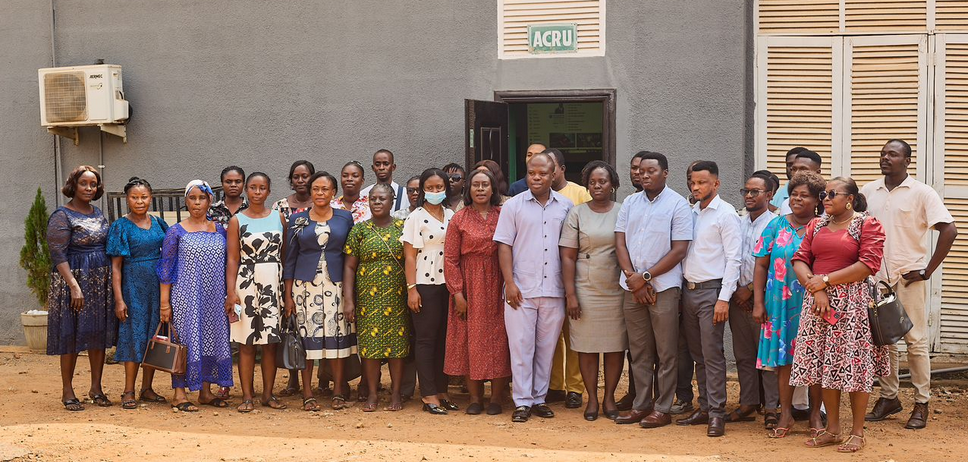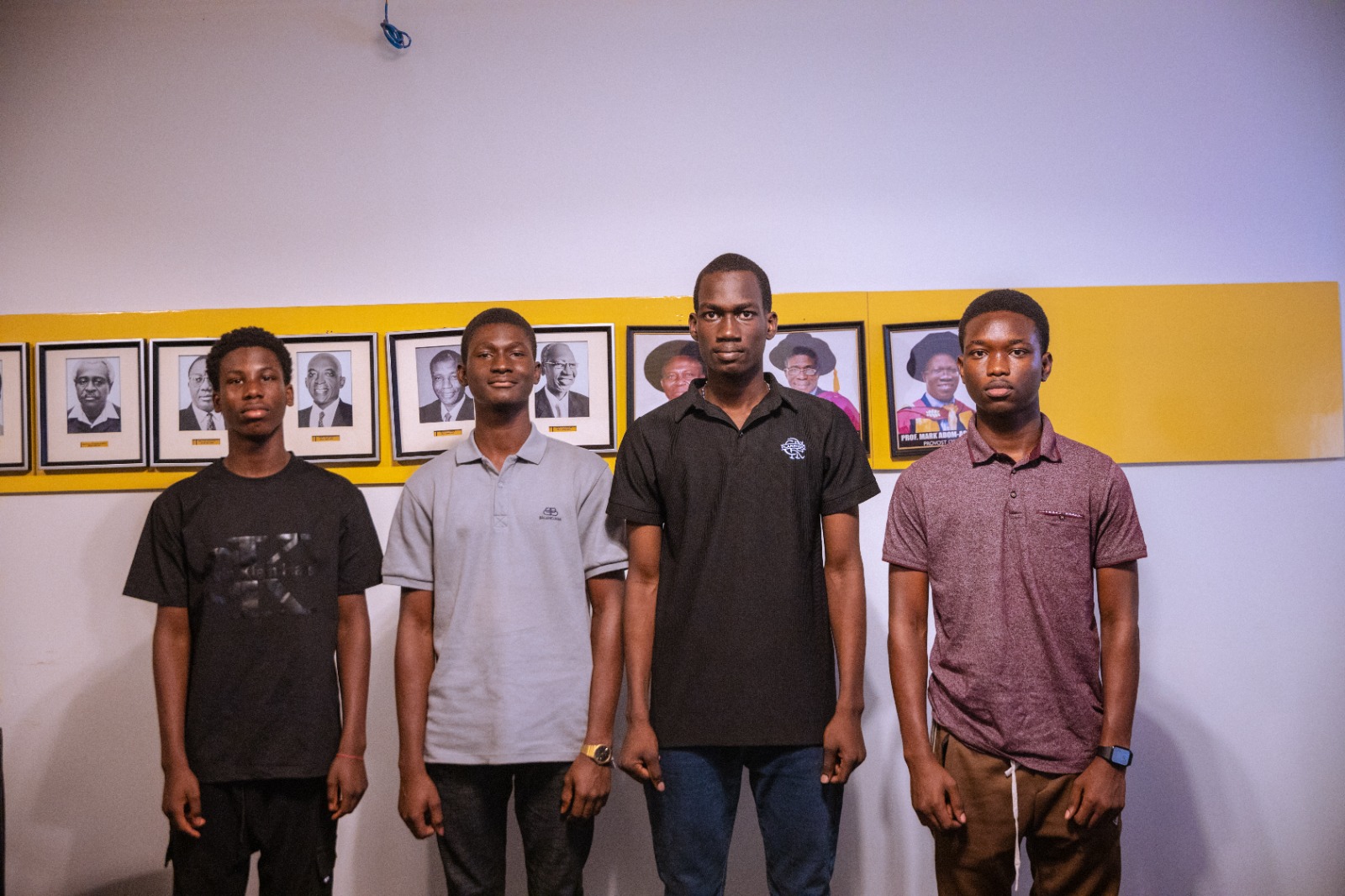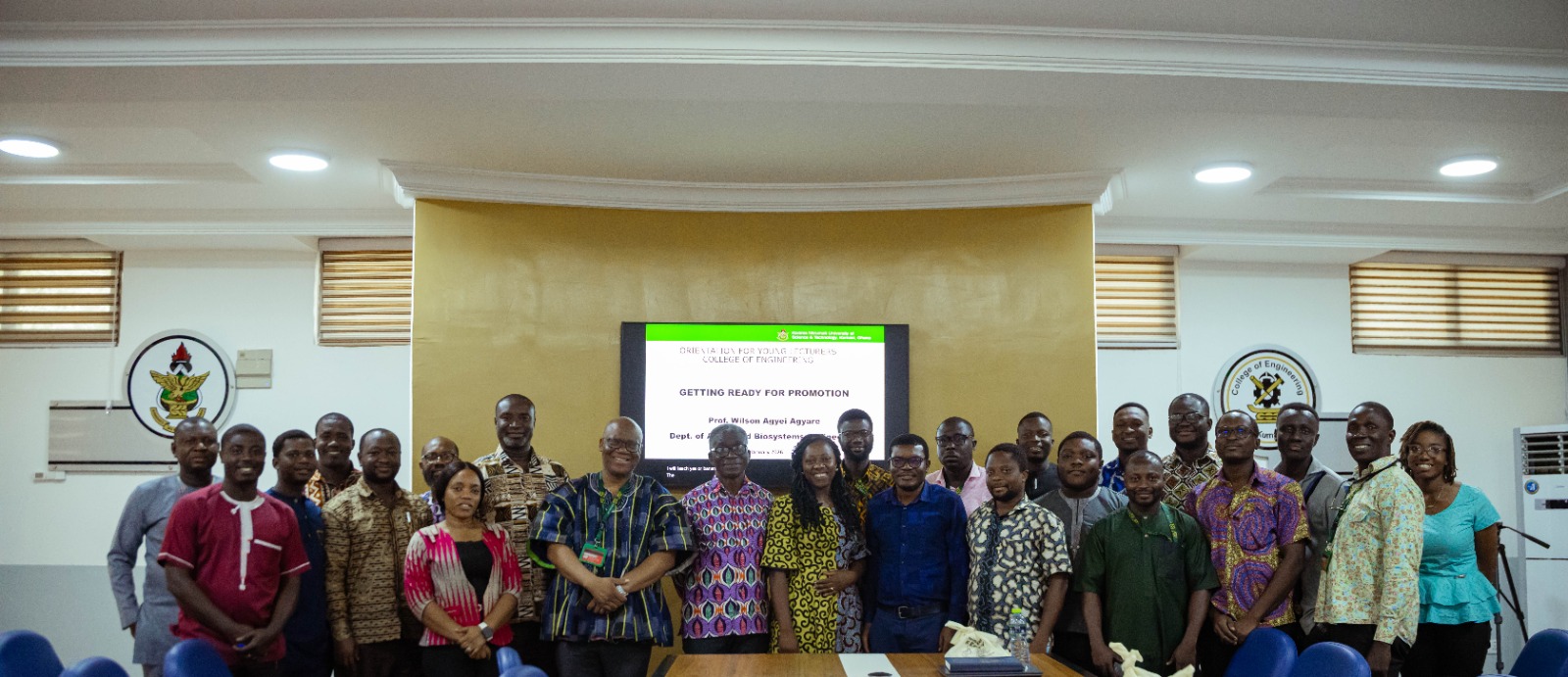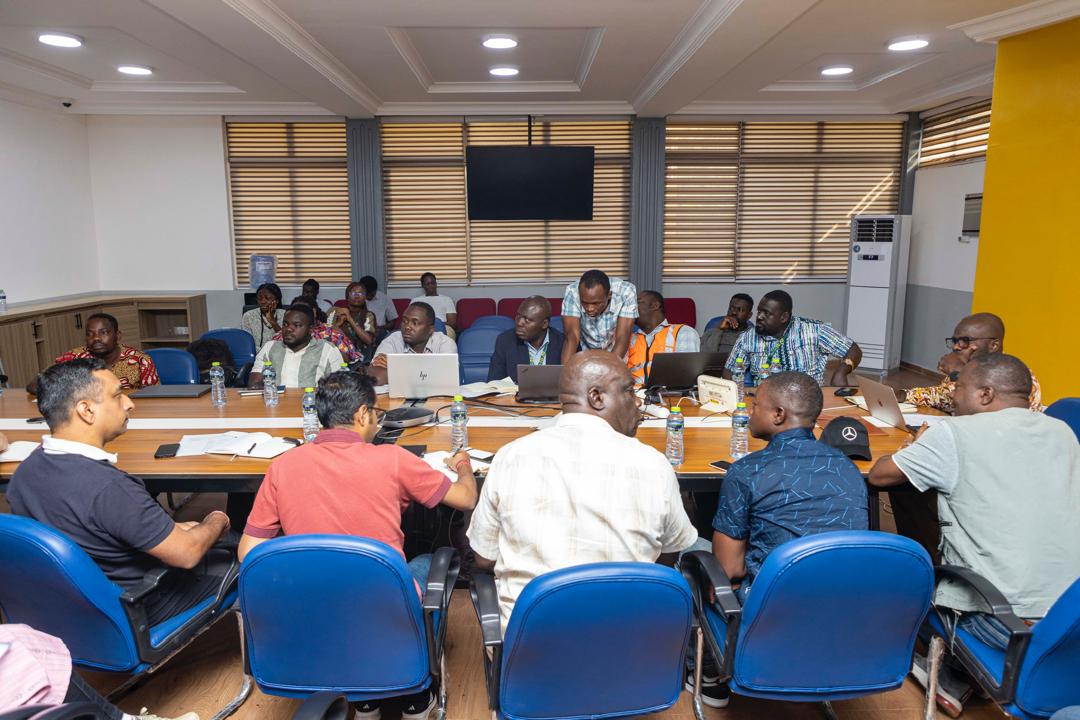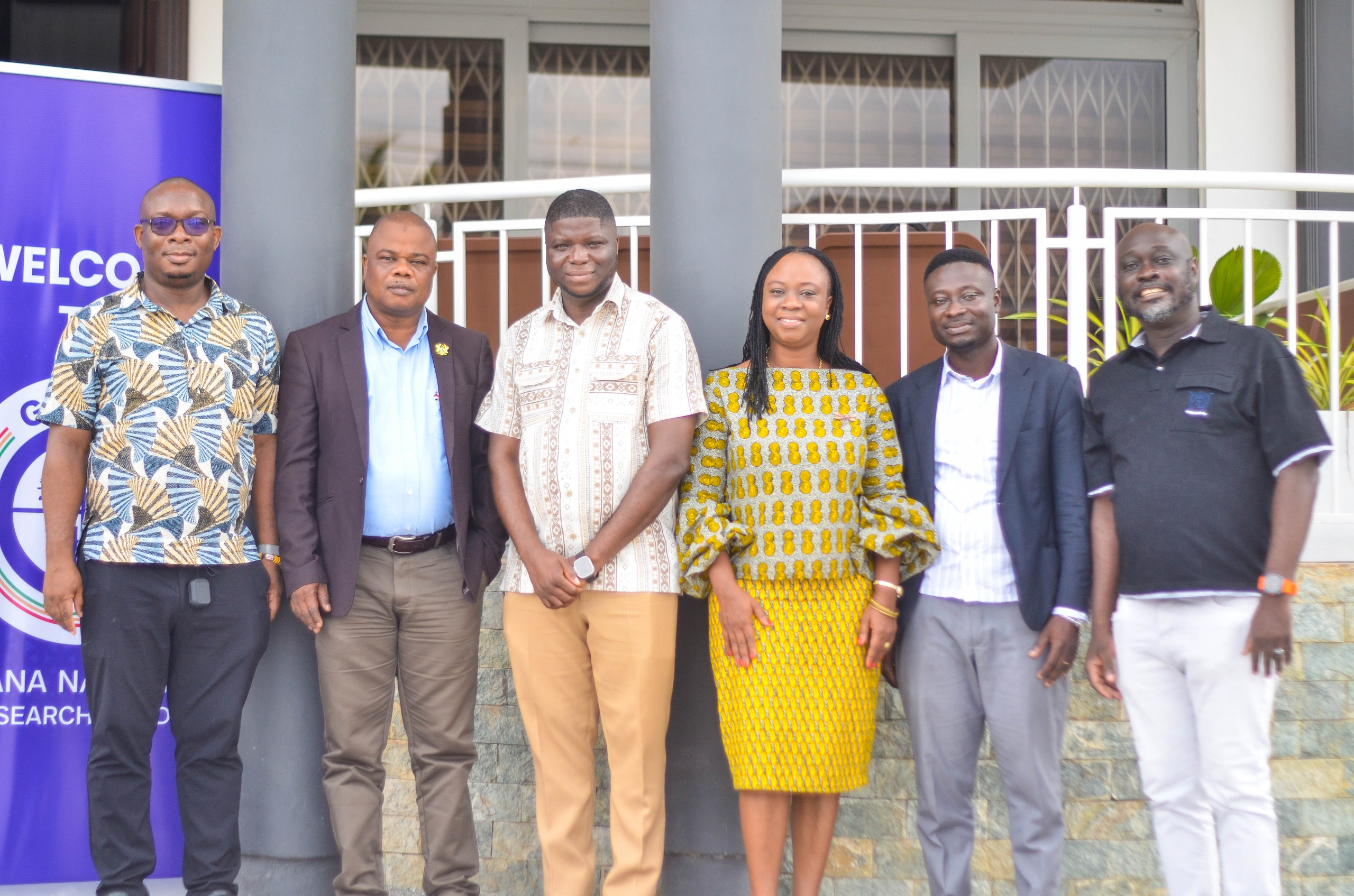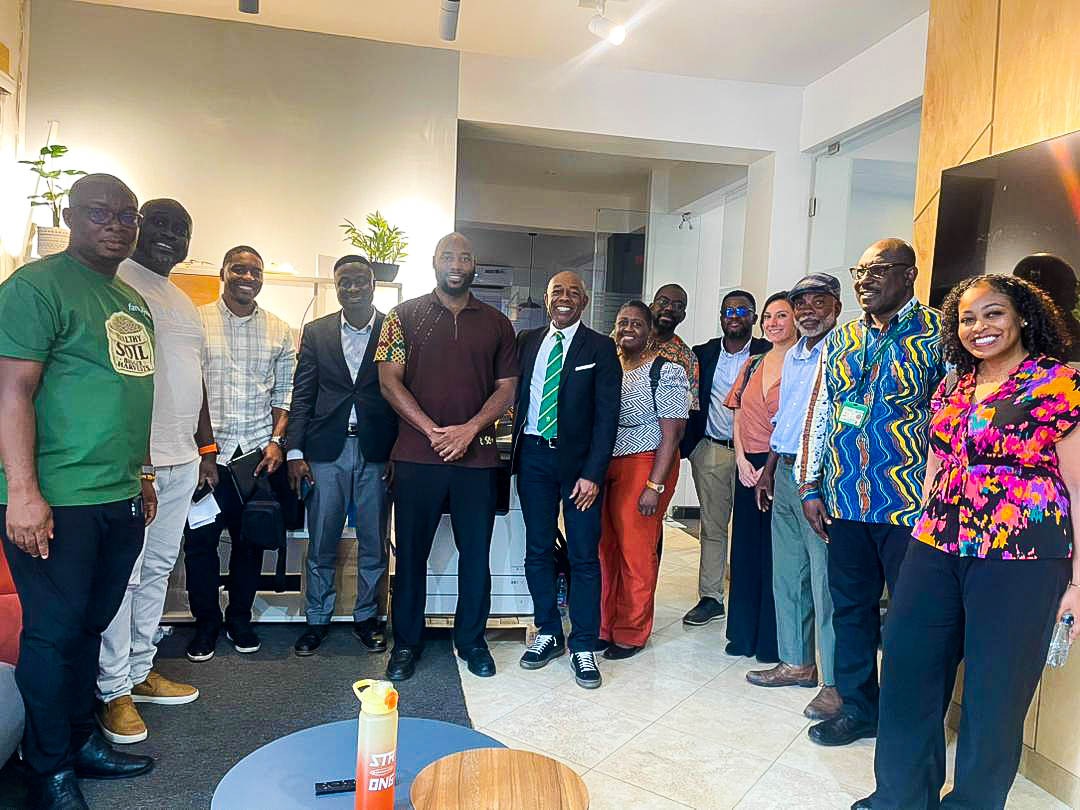The KNUST Sustainable Energy Service Centre of the Department of Mechanical Engineering has developed two innovative institutional solar PV electric steam cooking technologies (ISESC) to decarbonize institutional cooking, especially in senior high schools in Ghana. The research project was funded by the Innovate UK (IUK) Programme under the Energy Catalyst 9 Project.
The institutional solar PV electric steam cooker (ISESC) uses solar energy as its energy source, and with sand as heat storage and transfer medium to generate steam to cook different types of food including kenkey, rice, beans, plantain, yam, etc. The solar cooking technology helps to eliminate CO2 and black smoke emissions from the kitchen, thereby providing safe indoor air quality and positive health benefits for the cooks and matrons 
The two solar cooking technologies have been demonstrated at a stakeholders’ workshop with matrons and cooks from some secondary schools in Kumasi.
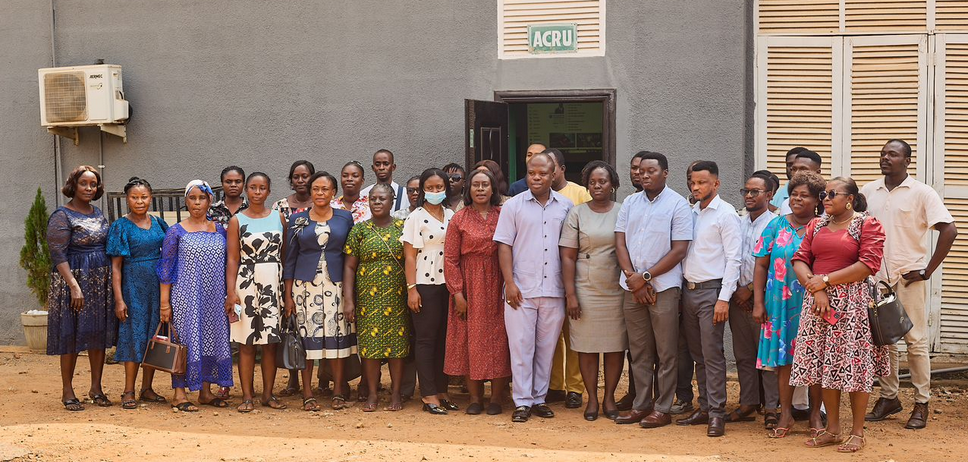
At the workshop, Ing. Dr. Richard Opoku of KNUST (https://webapps.knust.edu.gh/staff/dirsearch/profile/areas-of-interest/367e6c969a86.html ), who is the technical lead of the project highlighted the innovation of the ISESC technology, which uses sand as energy storage material to store heat to provide constant cooking power and sustain cooking process under varying solar radiation intensities and intermittencies.
Dr Mrs Eunice Akyereko Adjei of the Department also presented on the sustainability of the ISESC and the need for regular maintenance to ensure safe and efficient use of the system. Mr Michael Commeh and Richfield Sarfo also presented on Health & Safety, and First Aid Protocols on cooking technologies, respectively. Dr Oliver Kornyo of EEK Consults and Electricals also highlighted the need for electrical safety on the use of the solar cooker.
Dr Ian Byrne (of IBECCS Limited) and Rajvant Nijjhar (Consortio Limited) who are the UK partners on the project highlighted the need for environmental sustainability through sustainable and modern energy for cooking services, especially in senior high schools in Africa, where they heavily rely on polluting fuels like firewood and sawdust for cooking. Switching from firewood & sawdust for institutional cooking to solar energy will minimize deforestation and environmental pollution. In addition, emissions and black smoke from cooking with firewood & sawdust will be reduced with positive health benefits for the cooks.
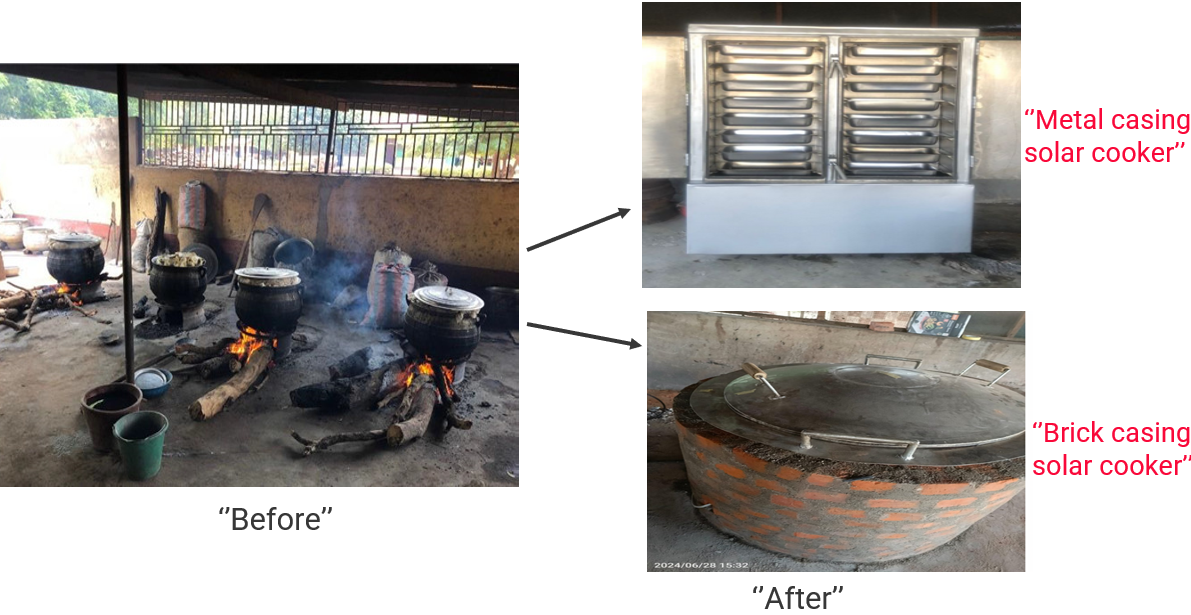
In the second session of the workshop, the solar cooker was used to cook rice, beans and kenkey in different trays of the ISESC.




